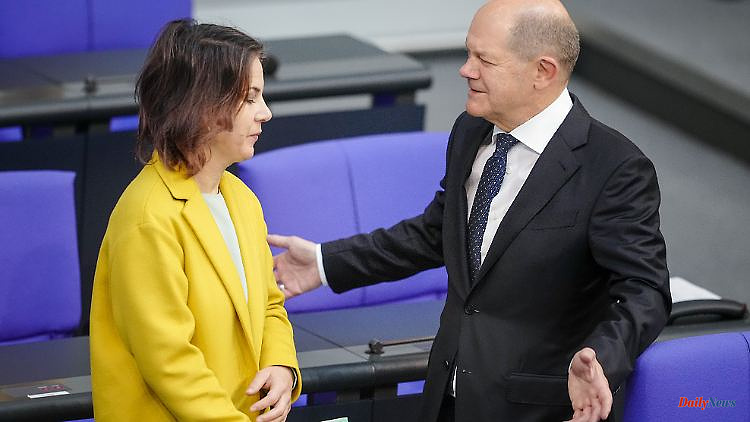The federal states feel ignored. They must not put their ideas into a paper that decides on the defense of Germany. The federal ministries are also crossed because of the "national security strategy". One point of contention is the future China course.
The federal government's work on an initial "national security strategy" for Germany has apparently come to a standstill. According to information from "Welt" and "Spiegel", the Federal Chancellery and the FDP-led Federal Ministry of Finance rejected a draft of the Foreign Office for the strategy - because of differences in some central points of the text. Fierce criticism also came from the federal states, which feel ignored.
The original timetable of "Ampel" was to present the strategy before the Munich Security Conference in mid-February. This schedule is now in question because the government partners are still far apart, reported "Spiegel" and "Welt", citing government circles. That is why the paper was not submitted to the departmental vote before Christmas as planned.
According to information from "Spiegel", the reservations relate to around 30 individual points of the strategy. There is disagreement, for example, on the question of whether a "National Security Council" should be set up - and if so, where such a new body for coordinating foreign and security policy should be located, in the chancellery or in the foreign ministry. The German magazine reported that the passages in the Foreign Office draft on dealing with China were too sharp in tone.
According to the information, the Ministry of Finance complained about the lack of accents on the fight against money laundering and terrorist financing. The paper is more "collection of ideas" than strategy, the "Spiegel" quoted a source from the house of Federal Finance Minister Christian Lindner. The Federal Ministry of Finance said to the "Welt" that the house had "joined the concerns of the Chancellery" and was "of the opinion that the development of the strategy still needs some time", thoroughness is more important than speed.
Criticism of the procedure also came from the federal states, which are to be involved in the development of the strategy. "I wonder how a sensible national security strategy can be developed in Berlin without the participation of the federal states - even if it is supposedly about foreign policy," North Rhine-Westphalia's Interior Minister Herbert Reul told the "Welt". "The major security-related issues, whether cyber security or the fight against terrorism, are also being worked on in the federal states."
Bavaria's Minister of the Interior, Joachim Herrmann, questioned the whole process. "If the federal government initially leaves the countries out of the picture on all these issues, the so-called national security strategy is already disqualified in its creation," he told the "Welt". In their coalition agreement, the Ampel parties agreed to develop a national security strategy for the first time. It is intended to provide cross-departmental guidelines for all security policy challenges.












